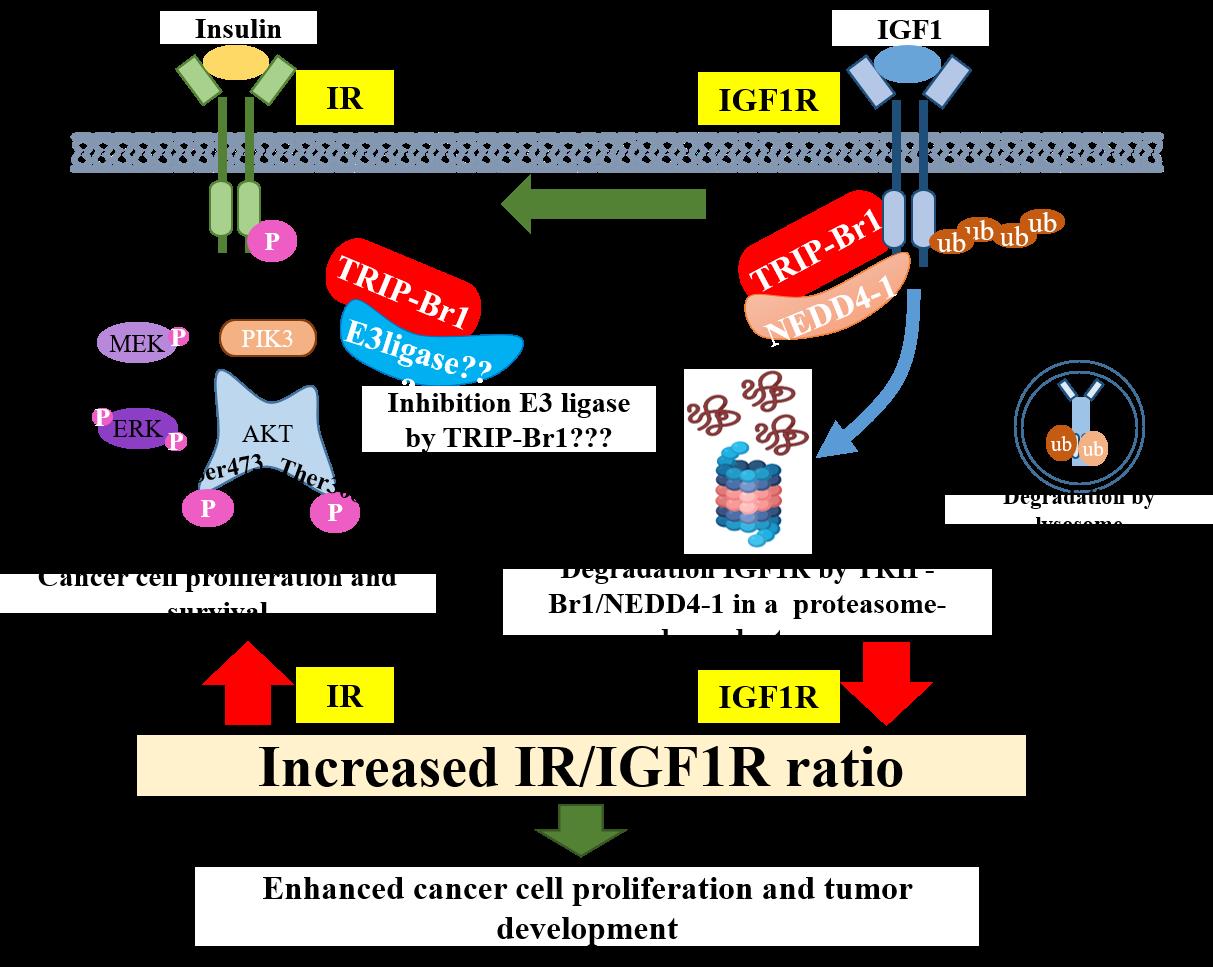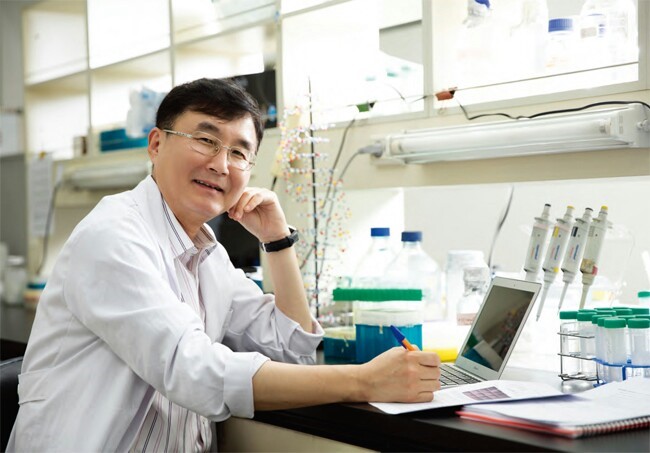Prof. Myung-suk Lee's research team identifies a new mechanism linking diabetes and breast cancer
- Views 6615
- Writer 커뮤니케이션팀
- 보도일자 2022-07-13
Professor Myung-suk Lee's research team from the Division of Biological Sciences at Sookmyung Women’s University succeeded in identifying for the first time the function of the carcinogen TRIP-BR1, which is involved in regulating insulin receptor (IR), insulin-like growth factor 1 receptor (IGF1R), and IR/IGF1R ratios in breast cancer. The results of this research were published online in the June issue of the internationally renowned journal Journal of Hematology & Oncology (IF = 17.388).
(Title of Paper: The regulation of insulin receptor/insulin-like growth factor 1 receptor ratio, an important factor for breast cancer prognosis, by TRIP-Br1)
The relationship between breast cancer and diabetes has been extensively studied, and it has been shown that women with diabetes have a higher risk of developing breast cancer than women without diabetes. Through various studies, the research team noted that the TRIP-Br1 gene not only plays an important role in cancer cell survival by inhibiting apoptosis in various stress states, but also plays an important role in diabetes, and focused on clarifying the working principle of the gene.

The research team proposed the ratio of IR and IGF1R, which are used as important targets for breast cancer and diabetes treatment, as a key factor in breast cancer prognosis, and proved this using diabetic model mice, TRIP-Br1-removed mice, breast cancer patient samples, and bioinformatics. They also succeeded in confirming that TRIP-Br1 positively regulates IR e-x-p-r-e-s-s-i-o-n, negatively affects IGF1R e-x-p-r-e-s-s-i-o-n, and ultimately increases the IR/IGF1R ratio in breast cancer cells.
In conclusion, they have derived research results that prove that TRIP-Br1 affects the increase in the high IR/IGF1R ratio in patients with diabetes and breast cancer, and that TRIP-Br1 increases the IR/IGF1R ratio even after anticancer
drug treatment, and affects the proliferation and survival of breast cancer cells.

Professor Myung-suk Lee said, “This study suggests that if the TRIP-Br1-mediated IR/IGF1R ratio increases, the survival rate of breast cancer cells increases, and the prognosis of cancer patients deteriorates,” and “this means that the TRIP-Br1-mediated IR/IGF1R ratio can be used as a predictor for the prognosis and occurrence of breast cancer.” He added, “I hope that the research results will be applied toward better methods for the prevention, diagnosis, and treatment of breast cancer in the future.”
Meanwhile, Professor Myung-suk Lee currently serves as the Dean of Research & Business Development Foundation
at Sookmyung Women’s University and the Director of Cellular Heterogeneity Research Center (SRC).



